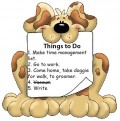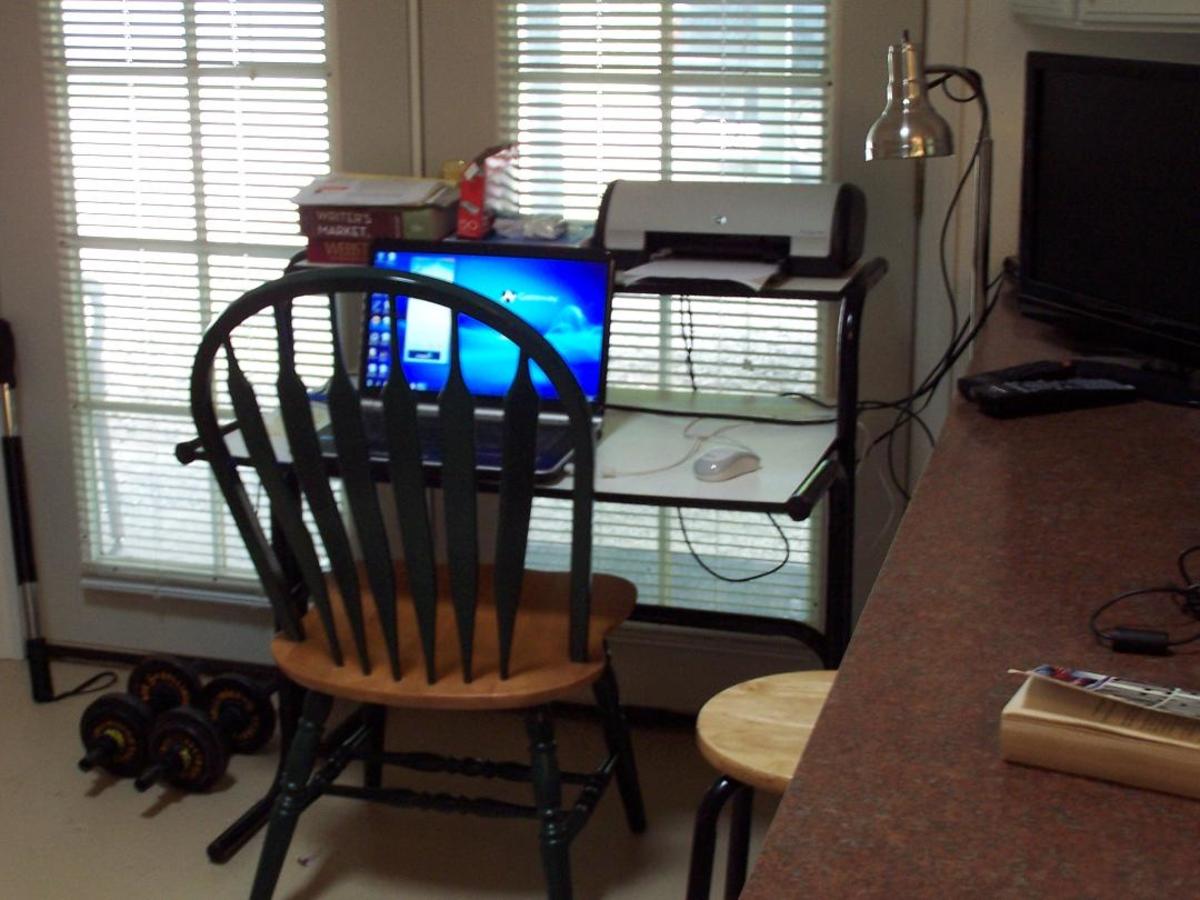Tips for Battling Writer's Block
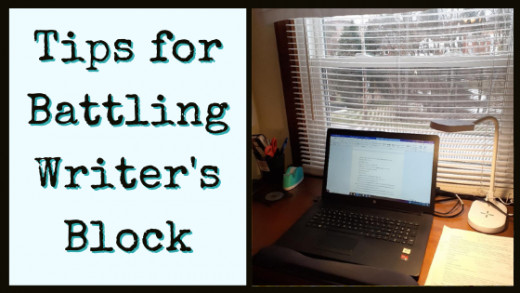
Something to write about
I had a high school English teacher who once told our class that the only good writers are old writers. She insisted that young people have not lived long enough to have anything worth writing about.
Well, that’s encouraging, I thought.
As someone who has wanted to be a writer since she was five years old, has filled over 20 notebooks with short stories, had poetry featured in several literary journals, and self-published three novels before the age of 30, I feel like I proved her wrong.
Since becoming a novelist, ideas have been pouring in, but I can’t say that has always been the case. In my late teens and early 20’s, I was always searching to write the perfect piece, one that I thought was worthy of getting published and one that told the world what I thought about it. Instead, I sat through many writing sessions where I didn’t write down one word or hand wrote several pages that I never bothered to type up.
When I was having these dry spells, I would go on the hunt for a book or article that would help me find inspiration. Unfortunately, there is plenty of material out there that tells you how to write; there’s not much out there that tells you what to write about.
Writer’s block was something I had to overcome with age, experience, and by relaxing my rules about how I spent my writing time. Here are some tips on how I conquered my writer's block.
Exercise
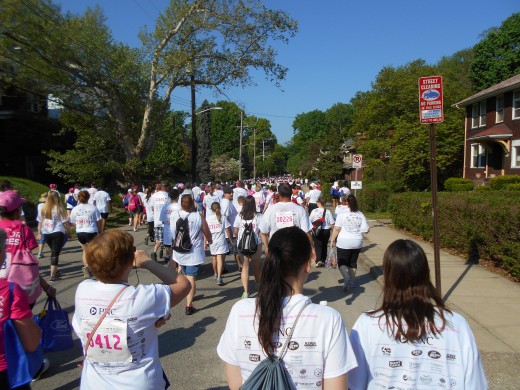
Get moving to get your mind going
Clean the house. Take a walk. Hop on your exercise bike. Movement will clear your head and keep you from thinking too hard about what you want to write about.
For some reason, a blank page or Word document can block your thoughts. When you exercise, your mind will start to wander, and you can daydream more easily. You may recall an old memory, make an observation about your life or someone else's, come up with a backstory or physical detail about a made up character, or notice something that is happening around you that you wouldn’t have noticed otherwise.
If you hate to exercise, just get up and complete a task. Put away dishes. Organize a bookshelf. If you get inspired, stop what you’re doing and start writing. Don’t set any time requirements for yourself. Either way, you're going to be productive.
Don’t think too hard, but if your mind starts to wander and you do think of a good idea, try to catch it and write it down before you forget.
A scene from Wonder Boys
Read or watch another writer's work
People go to the movies, read books, watch TV, see plays, or watch any kind of storytelling for various reasons. Writers can use them to get inspired.
Stories about writing are particularly helpful in curing writer’s block because they illustrate one or more steps of the writing process. Watch a movie and keep a notebook nearby. Take a few minutes to read somebody else’s work and draw inspiration from it. Maybe even write a review of it. You’ll still be doing some writing, even if it's not the genre you had in mind.
Sometimes just reading about a certain scene or hearing a certain thought will trigger you to create your own version of that scene or idea. In the age of the Internet, no topic is stale, and no story is too old to revisit. If you have a friend or relative who is a writer, offer to read and even edit their work. Maybe they will inspire you to write something new as well.
Write what you know

Write about your interests
What are your interests? What topics would make you want to read something?
These are the topics that you should be writing about. I spent many hours trying to write the kind of pieces that I thought would get me published, but they weren’t me, and that made them difficult to write, especially in college.
When I started to bring in pieces to class that were based on one of my interests, the others in the class would respond to my enthusiasm about the piece, even if it wasn’t a topic that interested them. For instance, we were once assigned to write a stream-of-consciousness story. I thought about what kind of person would have a lot going on in their head that they would have to suppress in order to get through a moment.
What came to mind was a pitcher during a baseball game. They have to keep their emotions in check so that they can get through an inning, maintain focus, and throw accurate pitches without getting discouraged by their mistakes.
So, I wrote a few pages about a veteran relief pitcher who has to come into a game early after the starting pitcher blows the lead by several runs. Feeling like he has the potential to pitch one more great game, he spends the length of the story trying to stay calm and focused as he faces batters almost half his age.
Little did I know that only one other writer in the class was a baseball fan. The others had trouble keeping up with the baseball jargon, but they were so impressed with the terminology and suspense that I had created that it was one of my most well-received pieces.
The sky's the limit

Don't limit yourself
Before I got up the courage to write novels, I focused on short stories. That’s because I was most interested in fiction, and those are the types of pieces that I was given as part of my school assignments, but it was so limiting. It’s tough coming up with a story that you can tell in just a few pages, and it kept me from producing other types of writing that would have made me a more skilled and productive writer.
Don’t limit yourself to one form of writing or just one genre. You’ll lose time stuck brainstorming within the confines of that type of writing, and you’ll wish that you hadn’t wasted it.
Now, I give myself free reign of the writing world. I like writing novels so that's what I typically do, but in between books I also like to write articles and essays. Sometimes I'll just journal. It shouldn't be about producing a publishable piece.
Productive writing can sometimes mean writing something that no one will ever see, just to do it. Spend your writing time writing in the format of your choice at that particular moment.
Explore your mind

Be aware of your thoughts
We are constantly thinking about things, creating stories and scenarios in our heads that other people would probably want to hear. Daydreams can disappear as quickly as real dreams so it’s important to be aware when you are having a moment of inspiration. Sometimes thoughts come and go, and I wish I had written them down.
These unconscious gems of inspiration can fly right by, and thinking about them too hard can cause them to disappear. So, make sure you have a pen and paper nearby for when you strike inspiration oil.
Unique locations

Find different places to write
Some people have a space where they like to write. I can get behind this, but I used to find sitting in the same place can be counterproductive. When the scenery doesn’t change, neither does your mindset.
When I was in college, I used to spend summers writing on my back porch, but there was no view besides a wooden staircase leading up to the deck, and the yard was fenced in so I couldn’t see anything happening beyond the backyard. I would find myself writing about squirrels and robins because there was nothing else around to inspire me. And believe me, there’s not too much to say about squirrels and robins that transcendentalist poets haven't already covered.
It’s important not to be agoraphobic when you’re trying to write. You need to go to new places and do some people watching.
Watch people getting off of a bus and see what they’re wearing. Peek into carts at the grocery store and see what they're buying. Go to a shopping center and see what types of people are going into specific stores.
Go have experiences, and share them with the world. They don’t have to be grand adventures. Just write about what you are feeling. Writers over-analyze everything, and we get something profound from every human experience.
The real world can also provide you with details to build your own literary worlds. Take the time to write down these details. I used to read the end credits of movies and write down interesting names that I saw. When I needed to come up with a name for a new character, I drew from that list.
Collect descriptions of people, architecture, cars, plants, and other details to color in the world and atmosphere that you are creating. Write a few pieces just describing a place or person or object. Keep them in a special notebook or Word document on your computer. You never know when you can use them later. Even if you never refer to it again, a detail may stick in your mind that may come up later while you're building worlds and characters.
I also find it much easier to write when I’m on vacation. When unburdened by the distractions of everyday life, I can bring my notebook to the beach or write much more easily in a hotel room before bed when I didn’t have other things to do. Take advantage of your free time, and get some writing done, and you will be amazed by how much you accomplish.
Charlie and Sally writing

Write an essay
You can’t always start a piece from scratch. Sometimes the emotion needed for a poem just isn’t there, or you’ve hit a dead end in a story.
So, write about something you know. Analyze one of your obsessions. Tell a story about yourself. Essays are so easy to write, and they give you practice with pacing, description, etc.
Maybe they’ll lead to a decent piece of fiction. Maybe they’ll make a good blog post or article one day, or maybe it’s just another bridge to cross in order to get to more meaningful writing.
Westside Story, an adaptation of Romeo and Juliet

Borrow from the classics
Let’s face it, humans have been telling the same handful of stories for thousands of years. Everything is an adaptation from something else. So, without plagiarizing, make your own version of a classic story.
Pick a favorite movie or literary character and build a new world around them, one that makes sense to you. Add on to the story that you already know or go back and create an origin story for them. Re-imagine characters in new ways or in a different era.
I once wrote a story about three college students interning for a snotty professor who were assigned to go door to door collecting the data for a study that the professor had conducted. The participants in the study had to return the items that they were told to keep and complete a survey in exchange for a small payment. I based the three students on three of the Ghostbusters.
Using the characters in the movie as a guideline for how my characters would behave, it made not only the characters but the story unfold so easily as I wrote, and I was able to incorporate humor into what otherwise could have been a very dry story. The characters were heavily veiled from their movie counterparts, and no one who has read the story has ever been able to pick up on the homage until I’ve revealed it to them.
Imagine backstories for old relatives
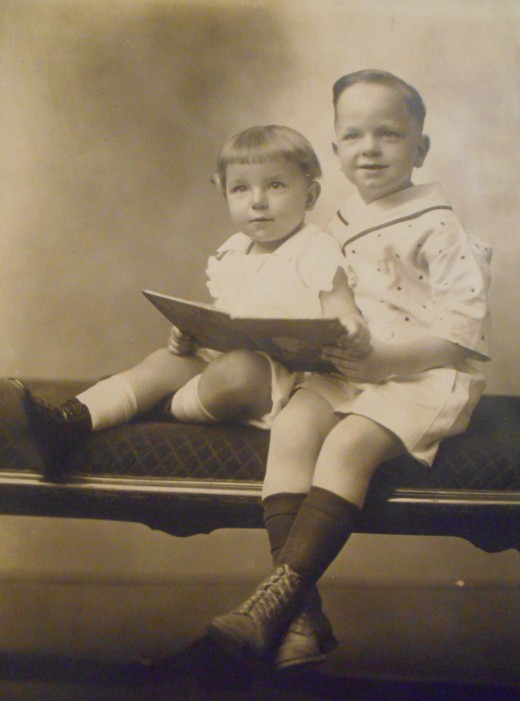
Write for somebody you know
If you need something to write about, write a piece as a gift for someone else. While my little sister was going through the tween vampire craze, I decided to write her a novella about vampires as a birthday present. By keeping my target audience in mind while I wrote the story, it kept me moving forward, even if it wasn’t the kind of story that I would normally write.
Another exercise you could try is writing a story about a relative you've never met. Look through old pictures, and use those people as your main characters.
Ideas occur while you dream

Dream
I have heard conflicting advice about using dreams in your writing. Some say they are too symbolic to make coherent while others say go for it. I agree with the latter. Some of my best work has been inspired by dreams.
Not just images but feelings have been very instrumental in shaping my second book, Saving Hacal’s Horrors. The dream that inspired the book was about a ghoulish family of grave diggers. This gave me the idea to write a book about a horror-themed family business.
I started keeping a dream journal in a sketch book so that I could sketch out an image and include captions to call back the feelings that I had during the dream. Dreams can fade and disappear fast, and it’s interesting to look back into this journal and remember certain dreams that I would have forgotten had I not written them down.
This Points of View book has helped me to find a perspective to write from when I'm blocked.
Conclusion
My English teacher wasn’t wrong in the sense that age makes you a better writer, but that doesn’t mean you should wait until you’re old to start writing. It takes years of practice and a collection of rejections before a writer figures out how to do it.
Like the books that I have read on finding inspiration, none of my advice above specifically tells you what to write about. I can’t feed you topics or characters or conflicts because that spark or seed that leads to a great piece isn’t something that can be handed out.
You also can’t be driven by fame or fortune. Those feelings have only ever held me back. You might always struggle with inspiration or feel like what is in your head will never translate correctly onto the page, but if this is what you want to do then you have to be prepared to struggle through these challenges and be prepared to tackle them so that you can earn the right to call yourself a writer.







